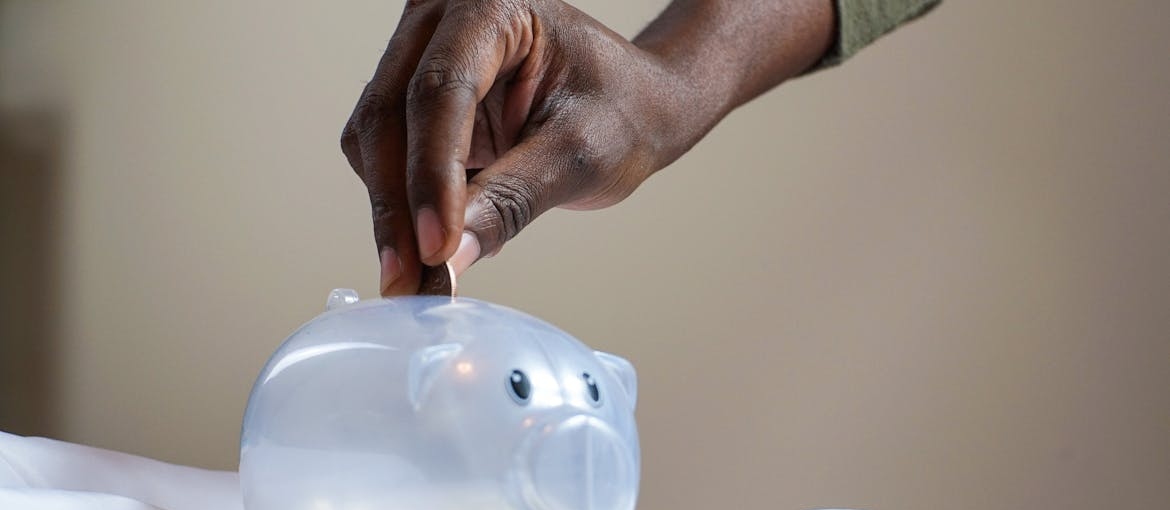Sobriety changes more than your body. It changes how you think, how you feel, and how you connect with people. You may notice more peace in your day. Your mood lifts easier. You feel proud of simple things again. The benefits of sobriety reach into every part of your life, and that is something many people don’t expect at the start. You might worry about the unknown, which is normal. You don’t need to handle every step alone. Treatment centers, including drug and alcohol rehab in West Virginia, give structure and support during the harder days. Each clear morning builds proof that you can handle life without numbing out. Sobriety gives you space to grow. It brings new chances. You deserve to feel steady, hopeful, and free.
Emotional Growth and Mental Clarity
Clarity arrives once substances leave the body and mind. Real feelings appear without delay, which can feel intense at first. A calmer rhythm forms as thoughts slow and stress loses power. Steady choices replace impulsive reactions. Confidence rises each time progress shows. The benefits of sobriety begin internally and influence every part of daily life. Mental calm lets space for honest reflection and healthier responses over time with steady growth.

Stronger Emotional Awareness
Facing emotions without numbing builds self-awareness. Substances often acted like a barrier, so removing them allows real feelings to show. Some emotions feel sharp or confusing, yet they signal progress. Awareness grows each time a feeling is named instead of pushed aside. Counselors often teach practical ways to pause and observe emotions before reacting. Many programs use motivational interviewing for substance abuse, a method that encourages reflection without judgment.
Personal values become clearer during these sessions. Decisions start aligning with long-term goals. Emotional awareness supports patience during stress. Honest reactions replace avoidance. With time, deeper insight develops. Patterns that once stayed hidden begin to reveal their triggers. The more awareness builds, the easier it becomes to choose actions that protect recovery and personal peace, over days, weeks, months progress continues.
Reduced Anxiety and Stress
Anxiety often fades as the mind adjusts to life without substances. A calmer nervous system develops with routine and rest. Progress happens step by step, not all at once. Many people notice small shifts in focus and mood as days pass. The benefits of sobriety timeline looks different for every person, yet the direction usually moves toward steady relief gradually. Practical actions help lower stress and steady the mind:
- Deep breathing: Slows racing thoughts and relaxes tense muscles.
- Grounding exercises: Bring attention back to the present moment.
- Short walks: Reduce tension and clear the mind.
- Quiet space: Gives the brain time to reset.
- Talking to support: Creates connection and lowers emotional load.
- Rest and water: Help balance the nervous system.

Improved Self-Confidence
Confidence grows as actions match goals. Each sober day proves commitment and strength. Progress becomes visible through small victories, like keeping promises or handling stress with calm behavior. Self-respect returns once excuses fade. Many people feel stronger when structure supports their routine. Programs such as rehab for seniors offer steady guidance and accountability for older adults who want focused support.
Clear thinking makes problem-solving easier. Motivation increases as results appear in daily life. Honest effort replaces avoidance. Trust rebuilds within the self through repeated positive choices. Confidence becomes a product of consistency. Small steps matter. Every completed task adds proof that change is possible. Identity shifts from surviving to improving. Growth becomes a habit instead of a fight. Confidence becomes part of everyday life with steady progress showing real results.
Rehab and Long-Term Support
Recovery becomes easier with structure. A stable plan offers direction when life feels uncertain. Support replaces isolation and gives room for progress. Treatment programs provide guidance, accountability, and tools that reduce relapse risk. Skills learned in rehab carry forward into daily life and help keep sobriety steady. Progress improves when routines are clear and supportive people stay close. Each step builds strength and reinforces positive change over time.
Therapies That Build Coping Skills
Therapy creates space to learn new patterns in a safe environment. Many people enter treatment feeling overwhelmed or unsure how to regulate their emotions. Coping skills develop through practice, not pressure. A therapist might focus on thoughts, feelings, and behavior to help track triggers more clearly. Many rehab programs use cognitive behavioral therapy for substance use disorders, which teaches practical tools for handling stress and uncomfortable emotions.
This method encourages small, realistic steps instead of impossible expectations. Skills gained in therapy support long-term progress. Emotional stability grows stronger when thoughts become more grounded. A sense of control increases as daily routines feel less chaotic. New coping tools replace old habits that caused harm. Each improvement brings confidence, momentum, and more readiness to face challenges with clarity and strength.

Structured Support in Early Sobriety
Early recovery can feel intense, especially when habits and routines shift. Predictable structure reduces overwhelm and gives a clear path forward. Consistent support offers reassurance while new coping skills develop. A program such as an intensive outpatient program West Virginia has provides therapy, accountability, and ongoing check-ins. Treatment fits into real life, which helps recovery feel achievable, not intimidating.
Emotional balance improves as progress becomes visible. Rest, nutrition, and regular routines strengthen decision-making and focus. The benefits of sobriety show through clearer thinking and calmer reactions. Connections formed in treatment offer reliable encouragement. Structured support keeps progress moving during moments of doubt and stress. A stable plan prevents relapse and builds confidence in daily decisions. Over time, life starts to feel manageable and steady.
Long-Term Planning After Treatment
Recovery continues long after treatment ends, and planning helps keep progress steady. A schedule with support meetings, therapy, and healthy habits adds stability. Many people stay connected to care through a drug rehab WV provider, which helps monitor progress and address challenges quickly. Setting goals for work, relationships, and self-care encourages momentum. Confidence grows as positive choices stack up.
Financial and emotional improvements reinforce commitment. The health benefits of sobriety become clearer as the mind and body adjust. Long-term planning shifts recovery from a temporary task into a lifestyle. Relapse risk decreases when structure remains strong. Planning keeps focus on daily improvement instead of perfection. Progress becomes easier to maintain because routines support growth. Long-term recovery thrives when support, purpose, and accountability work together.

Better Relationships and Social Connections
Sobriety changes relationships in real ways. Real conversations replace avoidance. Actions become steady and reliable. Loved ones start noticing consistency. Trust grows slowly, and progress feels earned. Emotional presence becomes stronger each day. Strong relationships support long-term recovery. The quality of connection improves when the mind is clear and present. Small changes in behavior create large improvements in relationships. Healthy communication becomes easier with practice and patience.
Rebuilding Trust With Loved Ones
Trust returns through steady action. Substances once controlled choices, reactions, and priorities. Sobriety shifts that focus back to relationships. Loved ones watch for consistency rather than promises. Real change becomes visible in routines, behavior, and problem-solving. Many families find counseling helpful as they repair old wounds. During recovery, a common thought appears: what are the benefits of being sober.
One major benefit involves restoring damaged relationships. Progress becomes obvious once honesty replaces excuses. A powerful milestone arrives when someone starts to rebuild trust with family and friends after addiction. Patience plays an important role here. Loved ones need proof over time. Trust grows when responsibility replaces avoidance. Steady actions communicate growth far louder than words ever could.
Healthier Communication
Clear communication improves once substances are gone. Thoughts organize more easily, emotions stabilize, and conversations feel less defensive. People finally get the real version of the person in recovery, not the shield created by substances. Healthy communication has structure and respect. Clear habits make conversations calmer and more respectful:
- Pause first: Creates space to think before reacting.
- Use direct language: Keeps misunderstandings from growing.
- Listen fully: Shows care and respect.
- Acknowledge mistakes: Builds accountability.
- State needs clearly: Makes support easier for others.
- Stay present: Prevents arguments from escalating.

Supportive Friendships and Community
New friendships often appear once sobriety becomes steady. A clearer mind attracts people who value honesty, respect, and stability. Confidence grows when support surrounds progress instead of enabling harmful habits. Shared goals create powerful connections. The question is sobriety really worth it becomes easier to answer once positive relationships start forming. Supportive connections make recovery lighter and less lonely:
- Attend support groups: Encourages consistency and belonging.
- Meet people with similar goals: Reinforces healthy habits.
- Join sober events: Builds social confidence.
- Connect online: Keeps encouragement available anytime.
- Volunteer: Adds purpose and builds fulfillment.
- Reach out when needed: Prevents isolation.
Personal Success and Life Fulfillment
A sober lifestyle creates space for new opportunities. Tasks feel manageable. Focus becomes clearer. Life begins to feel intentional instead of scattered. Progress shows in daily routines, decisions, and goals. Interests return. Motivation increases as stress decreases. The mind finally has room for purpose. Each step forward adds proof that change is possible. Over time, the benefits of sobriety start shaping identity. Life becomes fuller and more meaningful.
Increased Productivity and Motivation
Motivation returns when substances no longer control energy, time, and decisions. Work becomes easier because focus stays steady. Tasks get finished. Deadlines cause less panic. Planning the day becomes simple instead of chaotic. Each completed task adds momentum. The mind stays clear, which helps with decision-making. Progress builds confidence. New routines replace old patterns.
Productivity becomes evidence of inner stability. The benefits of being completely sober appear through action: getting things done, reaching goals, and feeling capable. Every step forward proves strength. The ability to follow through becomes a core part of identity. Motivation grows when progress becomes visible. Clarity removes chaos. Goals feel reachable. Productivity stops feeling forced and instead becomes natural.
Financial Stability
Money stays available instead of disappearing into substances, fees, or emergencies. Budgets finally make sense. Bills get paid on time. Savings become possible. Financial clarity grows with emotional clarity. Treatment often becomes more affordable through insurance resources like humana rehab coverage, reducing stress during recovery. Financial progress brings freedom.
Better decisions lead to healthier outcomes. Each responsible choice builds confidence. Financial stability becomes one of the strongest answers to the question many people face early in recovery: is sobriety really worth it. The financial change proves that recovery affects every part of life, not only physical health. Stress drops when spending becomes intentional. Money starts supporting goals, not addiction.

New Hobbies and Personal Purpose
Sobriety opens time for interests that never had a chance before. Activities feel rewarding instead of draining. Energy returns. Confidence grows as new skills develop. A sense of purpose slowly forms as enjoyment replaces escape. Trying new activities builds purpose and adds joy to daily life:
- Creative interests: Build expression and release stress.
- Fitness classes: Improve mood and create structure.
- Learning new skills: Strengthens confidence and curiosity.
- Travel with intention: Creates memories, not regrets.
- Exploring passions: Helps shape long-term purpose.
- Volunteering: Provides connection and fulfillment.
Choose Yourself and Begin Again
Sobriety is not about giving something up. It is about gaining a life that supports your peace and your goals. Each day without substances strengthens your mind and your confidence. The benefits of sobriety reach far past physical health. If you are scared, that is okay. Change often feels heavy at first. However, you do not have to face it alone. Reach out to people who care. Reach out to professionals who understand addiction and recovery. Support gives you the strength to keep going.



